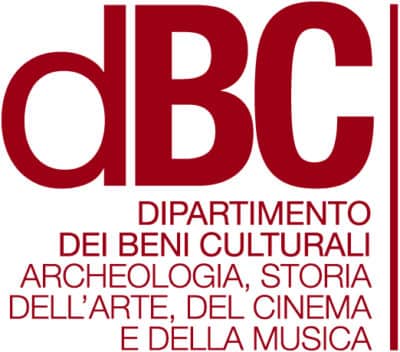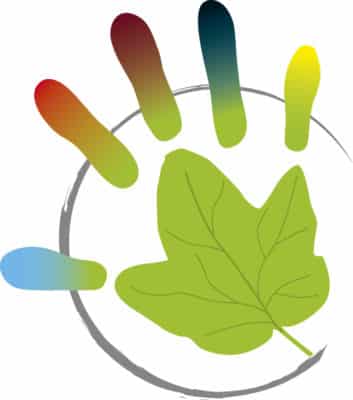

The First-level short specialisation degree Tourism 4.0: design of the tourist offer trains students in possession of a Bachelor’s Degree who are driven by a passion for tourism, as well as professionals who seek to acquire new knowledge and develop new skills.
The offer is organized on an interdisciplinary basis and revolves around the use of interactive and experiential methods, so that it can meet the many demands required from anyone who wishes to pursue a career in management or launch their own business in the world of tourism.
The course offers a deeply job-market-oriented approach thanks to the participations of experts both in the role of teachers and testimonials, as well as the cooperation with organizations which manage tourist destinations and where students can find opportunities for internships and placement.
The contents of the First-level short specialisation degree Degree Tourism 4.0: design of the tourist offer are organized according to two main topic areas: planning and management, and communication.
All teachings, lectures, case study analysis, and meetings with testimonials are characterized by a hands-on approach and are paired to various forms of practical training which allow students to work in groups or individually to elaborate and implement projects, while putting into practice the skills acquired during the theoretical lessons. The course includes ongoing assessments at the end of every module, plus a final report to present orally. This Short Specialization Degree also includes 60 hours of workshop activities dedicated to the realization of an integrated tourism program, from planning to advertising.
The First-level short specialisation degree Degree Tourism 4.0: design of the tourist offer trains professionals and consultants who operate in the field of management and communication of integrated tourism programs. Students in possession of a Bachelor’s Degree do not need a specific background, as we believe that a multifaceted group of attendees with various skills and competencies can offer valuable input in the organization of activities and workshops. This Short Specialization Degree is also aimed at professionals who wish to acquire new knowledge and skills in this field.
Students’ models will be professional figures with a broad expertise in the field of design, management and marketing of tourist destinations, sustainable tourism development, communication and promotion of tourist destinations and products, management of digital platforms and applications, organization and management of events and conventions, and management of activities related to hotel business and hospitality.
Attendants will have the chance to develop and improve skills which may prove useful to launch their own business in the world of tourism.
The program of the First-level short specialisation degree Tourism 4.0: design of the tourist offer will cover the following topics:
- Tourism 4.0: design of the Tourist Offer (6 hours)
Overview of the course’s goals and teaching methods.
- Sustainability and competitiveness in tourism (18 hours)
Tourism competitiveness, environment and local communities.
- Heritage and international networks: UNESCO sites, European cultural routes and sustainable development of the territory (18 hours)
Focus on the UNESCO sites network and the program of Cultural Itineraries of the Council of Europe.
- Recent developments of European and Italian tourism policies (12 hours)
Analysis of the current tourism legislations in Europe and Italy.
- From destination management to destination governance (18 hours)
Destination management and tourism destination governance.
- Destination marketing (18 hours)
Tourism destinations between supply growth and the evolution of tourism demand.
- Methods and techniques for participatory tourism planning (12 hours)
Participatory planning for the creation of business networks and product clubs.
- Planning and innovation in tourism businesses (18 hours)
Fundamentals for the organization of the birth process of tourism businesses.
- Business and entrepreneurship: placement, value proposition, clients and markets, marketing strategies, and communication (18 hours)
Effective management of a business, from marketing strategies to communication.
- Building your business’ tourism offers: the relationship with local territory and community’s workers (12 hours)
Focus on the making of an informed, coherent, and market-oriented offer.
- Sales channels and systems: revenue management, funnel marketing (12 hours)
An analysis of the sales channels and systems for the economic sustainability of business.
- Sales and distribution design of tourism products and services (12 hours)
Planning the necessary steps for the distribution and sale of cultural and tourism services.
- Digitalization of tourism processes and services (12 hours)
Analysis of the digitalized processes and services for the transformation of tourism destinations in integrated tourism systems.
- The role of media relations (online and offline) in the strategic communication of tourism businesses (12 hours)
Media relations: discovering information, monitoring, and reporting.
- Crisis management fundamentals for tourism businesses and destinations (12 hours)
From the recognition of a crisis and its causes to the building and management of a crisis plan.
- Social media marketing (12 hours)
Social network and participatory communication as a means to tourism marketing.
- Smart cities for smart tourists (18 hours)
Internet of Things and other technological tools for involving and interacting with tourists.
- Fundraising for tourism (12 hours)
Sources of funding and related regulations, at European, national, regional level, for tourism planning.
- Workshop: Design of the tourism offer (60 hours)
Creation and promotion an integrated tourism product.
Throughout the years, our Short Specialization Degree has created an extensive network of contacts and tied several relationships with a number of DMOs (Destination Management Organizations) and DMCs, as well as promotion groups for tourism and territory development, municipalities and federations of municipalities, local action groups (LAGs), museums and foundations, cultural associations, various companies which deal with digital media marketing and communication, tour operators, and travel agencies.
This ever-growing network of contacts also ties some of its knots outside the region and allows students to find internship and job opportunities that are a good fit for them. Currents students might even find themselves working side by side with some of our alumni, who are now actively operating in this sector.
At the end of the theoretical section of the course, students can take part in a workshop activity organized around an analysis of tourism market trends, as well as the students’ interest and background.
The participation of teachers and experts working in the business allows our students to acquire both theoretical skills and know-how, while having a range of first-hand experiences that range from tourism product design to the creation of network dynamics and product clubs. They will have the chance to take part in the creation and design of tourism products such as the Literary Park of Euganean hills (Asolo), Film-induced Tourism, Padua & Arte Terme Card, as well as the organization of the participatory processes of the DMO Terme e Colli (Padua), and G20s’ most visited beaches in Italy.
With the 2020/2021 academic year, the board of this Short Specialization Degree decided to comply with the University’s proposal of delivering digital certificates in Italian and English. At the end of the course, students will therefore receive an Open Badge, a digital certificate stating their disciplinary knowledge, personal skills, and any acquired technical skills.
An Open Badge is a record of each student’s acquired skills or competences, or any goal achieved over the duration of the course. All Open Badges are guaranteed by the provider and are internationally recognized. The Badges are uploaded on a dedicated platform (https://bestr.it/organization/show/65), which uses an open-source format, and can be read by all applications that read Open Badge. These digital credentials are transparent, safe, machine-readable, and easily transferable. This system is useful to promote the digitalization of recognition processes in Student Information Systems and constitutes a new communication and networking tool on an international level.
The general ranking of merit for the academic year 2025/26 will be published on the Italian page of this First-level short specialisation degree according to the timing provided in the Call.
Information
FAQ
The lessons of the Short Specialization Degree will take place between November 2025 and June 2026 on Thursdays (2 pm to 6 pm) and Fridays (9 am to 6 pm) at the Department of Cultural Heritage of the University of Padua. Such organization allows students who work part-time or on weekends to attend the lessons. It’s important to keep in mind that the course has an annual duration and attendance is mandatory for at least 70% of the total amount of hours.
In order to facilitate students who, for example, can’t complete an internship because of work-related reasons (especially because am internship covers 250 hours), we offer the chance to present a project work instead. This consists of a project on a topic agreed with the teachers which allows students to actively put into practice what they have learned during the theoretical lessons.
All internships are organized by our tutor, who will interview students in order to find out about both their technical and soft skills, previous work experiences, and personal interests, and match the gathered information with the opportunities offered by our partners.
The lessons of the course are characterized by a hands-on approach and are usually followed by practical training, in which individual students or groups can put into practice the knowledge acquired during the theoretical lectures. So, save in exceptional circumstances, lessons will be delivered in presence.
Our students usually have quite a varied academic background, but so are the skills required by those who work in tourism. After acquiring some knowledge specific to this sector, the main aim is to learn to work in teams and share your own goals and methods.

